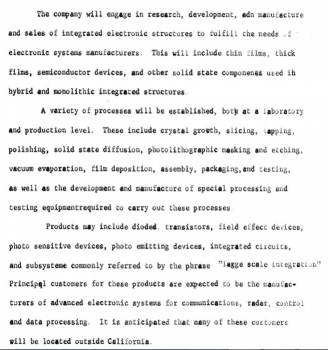The Best Business Plan is a Sale.
Last night was a great Shark Tank and it completed a rant I have been screaming at lamposts.
The Venture Capital system has system failures that self policing can’t remedy and syndicate squabbles can’t resolve. These issues will play out and with a bit of oversight, nudged back into place.
The last segment of The Shark Tank (aired March 13, 2015) was the best testimonial for the failures on the other side of the VC trade, the entrepreneur.
Recap: Entrepreneur comes to Shark Tank with a product that is selling reasonable well. Early in the formation entrepreneur finds an investor who buys in at an inferred value of 10mil (and likely rights, options or classes of stock. People promise crazy things) The company is not worth anywhere close to that value. Company did $150,000 last year. Margins are high and the owner has a good handle on costs, materials, labor, production equipment/facilities.
The entrepreneur explains to the Shark Tank that the strike price of the earlier round was determined by what the market will pay.
Problem:
1. Careless retail investors aren’t the market.
2. Deliberate mispricing, I believe, is unethical and too clever by half.
3. When that entrepreneur actually meets the ‘market’ their offering will have no takers. It’s radioactive, a possible lawsuit when/if an experienced investor or institution forces the price (way) down and flushes the early investor(s)
Q: Why do some entrepreneurs inexplicably want to solicit for VC money when it could destroy what otherwise might be a great business? VC capital is expensive, demanding and intolerant.
A: They don’t want to build a business; they want to rationalize their hubris on someone else’s dime. VC is hot and some entrepreneurs are drawn to it like a shiny new car.
What is so horrifying about a ‘lifestyle business’? I have kown enormous businesses that were, essentially, lifestyle businesses. They still had first generation management, profit distribution flowed back to the business owners and operators, business owners can employ more tempered and patient strategy to build a sustainable, profitable business rather than being forced to play out supermarket sweep.
1. They don’t want to sell and qualify/disqualify the product and themselves in the marketplace. They want to preserve an academic theory.
2. They want to build a conglomerate before they have even built a business. Dreaming big is good, but when it becomes excessive or delusional it will interfere in the optimal sequencing of business, hiring and retaining employees, etc., It’s a bad thing.
“The best business plan is a sale” – me.
If you have a sale there is a really good chance you don’t want, and shouldn’t, need VC money.
(about the image) Intel’s first business plan. Elegant and economical. Be that
14Mar
The Best Business Plan and the Sale

